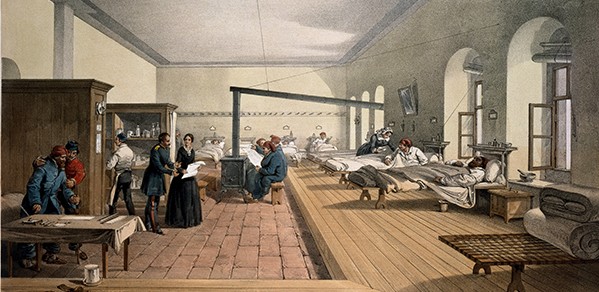
Applying a more holistic or ‘joined-up’ systems approach to health and social care provision could help transform the way these essential services are delivered and address the needs of a changing patient population, according to a joint report published today by the Royal Academy of Engineering, the Academy of Medical Sciences, and the Royal College of Physicians.
Making systems that work relies on asking questions to understand the context of the challenge, design a competent system, deliver this system into practice and to sustain its utility and use.
Professor John Clarkson
Over the last 20 years, there have been many calls to overhaul the way health and social care are delivered and to optimise the links between all the constituent parts of the health and care community but there has been no clear definition of how this might work in practice.
The framework proposed in today’s report, Engineering better care, outlines how a systematic engineering approach could be applied to health and social care, with the potential for transformative effects. Co-produced by engineers, clinicians, and health and care leaders, it is designed to develop systems that better meet the needs of patients, carers and NHS staff. The thinking behind the report is exemplified by an earlier project where a team of pharmacists, clinicians, patients, engineers, pharmaceutical suppliers and manufacturers used a systems approach to develop safer ways to administer methotrexate for the treatment of rheumatoid arthritis, following the death of a patient in Cambridgeshire in 2000 from a prescribed overdose. This approach successfully assessed the needs of patients, carers, manufacturers, and staff across the NHS system, using the principles outlined in this report.
The report’s proposals are informed by a unique forum of experts, including systems engineers, health and care professionals, quality improvement experts, and patient representatives. Their aim is to develop a new model to support the joined-up design and delivery of health and social care services. The new proposals are systematic, consistently taking into account the four key elements that are vital to improve processes: people, systems, design, and risk.
The work that led to this report has built a network of healthcare and engineering organisations and individuals who will implement and test the new model in healthcare settings over the next few years. For example, the Royal College of Physicians plans to integrate many of the findings into their new Quality Improvement Hub, which will take forward their vision of the Future Hospital.
Professor John Clarkson FREng, who chaired the joint working group that produced the report, says: "Making systems that work relies on asking questions to understand the context of the challenge, design a competent system, deliver this system into practice and to sustain its utility and use. Such questions typically focus on complementary perspectives on people, systems, design and risk and range from simple narrative enquiry to detailed engineering analysis and simulation.
"The questions presented in this report are the result of years of research and practice of a systems approach and provide a unique insight into the essence of what it is to engineer. The power of the simple question in changing the way people think cannot be overestimated and changing the way that people think changes what they do. Providing them with tools to put into practice their new ways of thinking then transforms what they can achieve."
Dr John Dean, the RCP’s Clinical Director for Quality Improvement and Patient Safety, said: “Physicians, other healthcare professionals and patients recognise that they are giving and receiving care in a health and care system that comprises multiple components. For the most effective, efficient and personalised care these components need to work well together, but unfortunately that often isn’t the case.
“This approach to engineering better care keeps people – patients, families and professionals, at the centre of a design process that recognises the individual elements of care, minimises risk and maximises opportunities. It brings together best practice from a number of fields as a single approach that could significantly improve care and outcomes. It’s a way we can deliver the RCP’s Future Hospital vision.”
Professor Sir Robert Lechler PMedSci, President of the Academy of Medical Sciences said:
“A more rigorous systems approach has the potential to optimise the delivery of health and social care. Any changes to the system must fully consider patients, healthcare professionals, carers and other workers. I am pleased that the framework set out in this collaborative report considers all these parties.
“The Academy of Medical Sciences welcomes the opportunity to work further with the engineering community and the Royal College of Physicians on their Future Hospital programme to trial the ideas presented in this report.”
In a foreword to the report, the Rt Hon Professor Lord Darzi of Denham OM PC KBE HonFREng FRS FMedSci says: “I fully endorse the recommendation that healthcare leaders and transformation teams consider the questions and tools laid out here to support a more consistent application of a systems approach to health and care design and improvement. With this work we hope to deliver benefits for patients, carers, and staff, and showcase the value in cross-sectoral working.”

